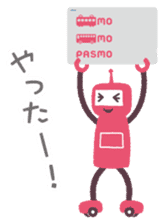Hi, I love Obsidian. It’s part of my daily routine since a year or so, and I use it to store all my work and personal notes for the future. The main reason I use it is because of its note storage method. Instead of relying on a database, it utilizes plain text files written in Markdown, as most of you already know.
However, I have a strange feeling about it not being open source. The recent events with Reddit have only increased this discomfort. My notes are in plain Markdown, so I have the assurance that no one can forbid me from accessing them. I also take precautions by creating multiple backups, which provides additional security against virtual loss if I handle things correctly (which I do).
That being said, I would love to have alternatives like Joplin or LogSeq that adhere to the same philosophy of work as Obsidian.
Joplin is not suitable for me due to its reliance on database storage. I prefer to have total control over my notes. On the other hand, LogSeq is more focused on serving as a diary rather than a personal knowledge manager, and it does not use pure markdown, wich will be a problem in the future when (not if) I’ll need to migrate out of LogSeq.
Honestly, the whole thing felt like a textbook example of a modern FOSS program (based on the website, the premise etc) that I was quite surprised when I found out it wasn’t open source. I think it’s unfortunate.
I had the same impression
Honesty I think Obsidian as a product. They have done a pretty good job of keeping my data open and available in the Obsidian Vault.
I pay them for Sync, so I consider it a service for them to maintain and upgrade the software. I would prefer the client be open source but it would hurt their ability to stay afloat and profitable to pay their employees.
If they go under or start an “enshittification” I can just take my JSON and markdown and make my own client or use one of the hundreds of other markdown clients to get my information.
This is exactly what I think.
I would prefer it to be open-source, but at least the data format (markdown) is ubiquitous and stored wherever I want it to be stored.
This is how I’ve been thinking of it too. If an equivalent open-source solution comes out, it’ll be really easy to switch to, but right now Obsidian is just unbeatable.
For me, knowing that it’s basically a text editor that has neat features, I’m not super concerned. If they ever shut down Obsidian, I’ll switch to LogSeq or one of the Emacs modes that does the same thing, maybe I’ll have to run a converter over the files, but that’s not a huge deal for me
Obsidian is a great piece of software, as a very nice community, but the answer to your question, to me it’s Logseq.
A pretty big issue. I can’t really trust it to survive for long or that it won’t be ruined by bad decisions. Because of that I use org mode, but if Obsidian was FOSS I would switch.
There is a loooog thread on the official forum on open source for Obsidian app: https://forum.obsidian.md/t/open-sourcing-of-obsidian/1515
IMO the best approach would be for them to make the promise, that they’ll open source the code if they become unprofitable or uninterested in further developing ObsidianMD and then leave. In that case, the community has a fully open source stack.
I am aware, that Obsidian is closed source, I try to keep the number of non-compliant uses of markdown minimal. While I use quite many plugins, I am aware, that the plugins being open source removes the risk a bit.
Your data, being in Markdown format, is portable to anything that can handle the format so should Obsidian change its policies or make the app itself paid you’re not SOL. But you will lose the functionality that Obsidian and its plugins provide, which could make that data less valuable to you in the short term. Nothing’s perfect.
I hate it. Even consider it somewhat as a security concern. Are my notes being harvested?
Just don’t use their paid sync. Treat it as VsCode but solely for markdown files.
That’s what I do. And syncthing works like a charm.
I really like obsidian and use it even though I usually prefer FOSS tools. It just suits my needs perfectly at the moment.
Having the markdown files on my drive is the primary reason I don’t stress over it too much.
I’ll probably start using Zettlr if it improves significantly or if I feel betrayed by Obsidian.I use it because it stores my files in a versatile exportable format (markdown) and the app is well made. I have blocked all network access from Obsidian so I’m not worried about data harvesting. I sync my notes with syncthing, so the folder that contains my markdown files is synced across all my devices.
I also sync them with Syncthing and I store/backup them in a private GitHub repository, that allows me to access my notes on any device connected to the internet. All of this is compatible with Android and Windows platforms.
Is there an advantage of syncthing compared to Obsidian-git?
Yes, the synchronization is in real time, and you can install it in Android and IOS devices (ok git can also be install but it’s more dificult). Also, you can have a lot of devices in constant sync without launching commands or touching any app, it works in background. I use both and they work perfectly for me.
However, I have a strange feeling about it not being open source. The recent events with Reddit have only increased this discomfort.
Well, Obsidian is not a live service. If the developers disappear tomorrow or decide to aggressively monetize it, you still have access to the app in its current state, and the whole plugins ecosystem.
Given the open format of Obsidian I’m not really that concerned about the fact that it’s not open source. It’s just markdown files I can do whatever I want with in the future.
I always thought it was open source since they have a repo in Github. I also really love Obsidian. It’s a really great app for any kind of notetaking, not to mention it uses markdown which can be read by any text editor. It also works really well with Syncthing, so my data is completely local. Well, if enshittification also happens to Obsidian, I’ll try to find other apps instead.









